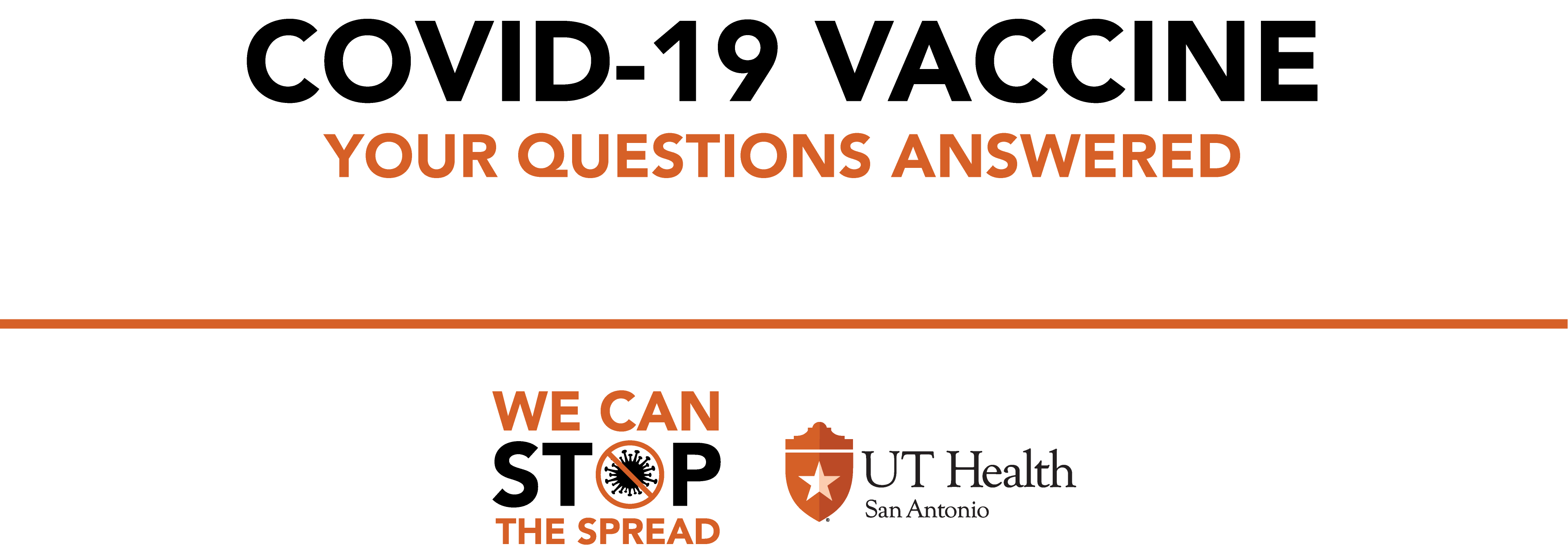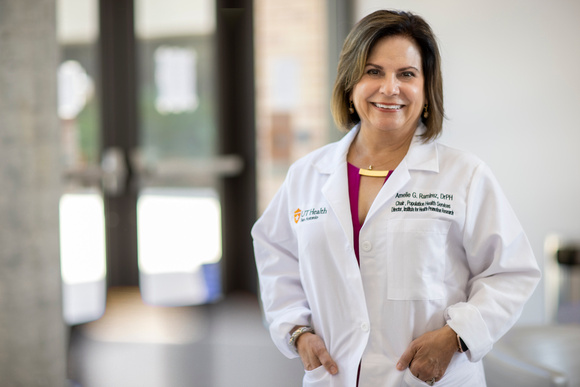 With the COVID-19 vaccine now here, hopes for stopping the spread and returning to normal life are on the rise. But many people within the community are still hesitant to receive the vaccine, with concerns about safety and efficacy. In this series, “Your COVID-19 Vaccine Questions Answered,” our experts explain why getting the vaccine is not only safe, but also the best way to protect yourself and the people you love.
With the COVID-19 vaccine now here, hopes for stopping the spread and returning to normal life are on the rise. But many people within the community are still hesitant to receive the vaccine, with concerns about safety and efficacy. In this series, “Your COVID-19 Vaccine Questions Answered,” our experts explain why getting the vaccine is not only safe, but also the best way to protect yourself and the people you love.
Latinos face a higher risk of disease, and not just from COVID-19. As a professor and chair of the Department of Population Health Sciences and director of the Institute for Health Promotion Research at UT Health San Antonio, Amelie Ramirez, DrPH, MPH, has dedicated her career to investigate why and to improve health outcomes for the Latino community.
Here, she answers some of the most common questions from the Bexar County area about the COVID-19 vaccine.
Q: Why is it important for me to get the vaccine?
Dr. Ramirez: We want our families to be able to get back together. We want to visit our sisters and brothers, parents, and abuelos and abuelas. We want to be able to do our jobs and go to school safely. We want things to get back to normal. The best way to achieve what we want is to get the vaccine right when it is available. Vaccines help our bodies become immune to a virus without becoming ill from it.
Vaccination is a safe, important way we can stop the pandemic once and for all. As Latinos, we are resilient. But part of our resiliency requires action, like getting the COVID-19 vaccine when it becomes available to you, to protect yourself and your family.
Q: What are the underlying medical conditions that can put someone at risk?
Dr. Ramirez: COVID-19 impacts people of all ages. Anyone can get sick. But some groups are suffering more than others.
For example, COVID-19 continues to disproportionately impact Latinos, killing over 76,000 and hospitalizing many more of our mothers, fathers, children, abuelos and other family members.
Also, some people with the following underlying health conditions are at a higher risk for severe illness (requiring hospitalization or intubation) from the virus that causes COVID-19: cancer, chronic kidney disease, chronic obstructive pulmonary disease (COPD), Down Syndrome, heart conditions, immunocompromised state (weakened immune system) from solid organ transplant, obesity, severe obesity, pregnancy, sickle cell disease, smoking and Type 2 diabetes.
Q: What are the side effects of the vaccine that most people are experiencing? Are they different by age group?
Dr. Ramirez: COVID-19 vaccination will help protect you from getting COVID-19. We know COVID-19 vaccines have gone through many months of rigorous testing and trials, building on many years of research on coronaviruses prior to the recent pandemic. As the vaccines rolled out, they have undergone the most intensive safety monitoring in U.S. history.
The nation’s leading health experts have indicated that, after millions of people have gotten the vaccine, some do not experience any side effects, while others may experience mild side effects. The most common side effects are pain and swelling where you got the shot, as well as fever, chills, tiredness and headache. These reactions are normal and show the vaccine is working to build protection. They should go away in a few days.
“Your COVID-19 Vaccine Questions Answered” is part of an educational series about the COVID-19 vaccine featuring helpful information and guidance from UT Health San Antonio leading medical experts. If you have questions you’d like our experts to answer, please contact communications@uthscsa.edu.


